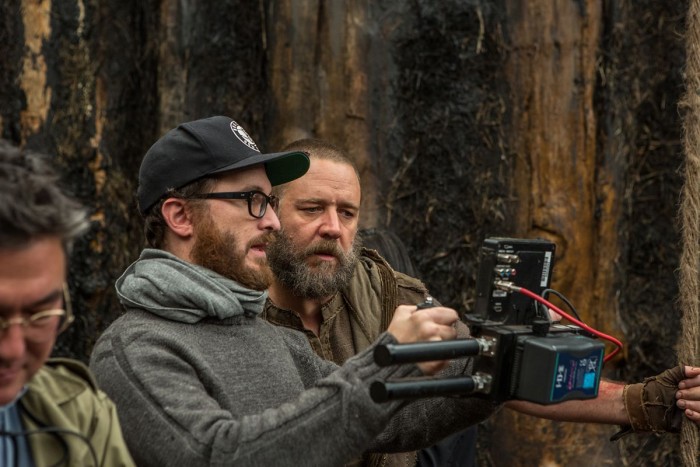Quentin Tarantino Refuses To Use Netflix, Still Records Movies On VHS Tapes
Earlier this week we ran a trailer and information about a new book titled I Lost It At The Video Store. The book by Tom Roston features a compilation of interviews with filmmakers such as John Sayles, Quentin Tarantino, Kevin Smith, Darren Aronofsky, David O. Russell giving an oral history of the video store era of cinema history.
The Playlist published an excerpt from the book, but I wanted to highlight a few quotes from Pulp Fiction/Django Unchained filmmaker Quentin Tarantino and Requiem for a Dream/Noah director Darren Aronofsky talking about their relationships with streaming services like Netflix and the process of editing a film to be watched on an iPhone. Hit the jump to read the Quentin Tarantino Netflix comments and more.
Here is director Quentin Tarantino on Netflix and other streaming services:
I am not excited about streaming at all. I like something hard and tangible in my hand. And I can't watch a movie on a laptop. I don't use Netflix at all. I don't have any sort of delivery system. I have the videos from Video Archives. They went out of business, and I bought their inventory. Probably close to eight thousand tapes and DVDs. I have a bunch of DVDs and a bunch of videos, and I still tape movies off of television on video so I can keep my collection going.
I'm not surprised that Tarantino refuses to watch movies on streaming services as I've known that the filmmaker supposedly owns a home theater where he watches movies from his 16mm and 35mm collection on his personal film projector. I was however surprised to hear that he still tapes movies off television on video cassette. Seems a bit too hipster for me.
And of course, after learning that Darren Aronofsky edits and creates sound mixes for his films so that they work on an iPhone, Tarantino commented: "That's the most depressing thing I've ever heard in my life. " But Aronofsky is a realist. Here is what he said about how small screens have changed the look and sound of his films:
Most people are going to watch my films on an iPhone. We talk about that. When we did a sound mix, we did an iPad or iPhone mix for Noah, so that hopefully it would be in stereo. "Look," I said, "there's a real audience there, and you have to be conscious of that. You can't control it." ... It's probably why I have moved to 1.85 [aspect ratio] in my framing on films. [Aronofsky went from 1.85 for "The Fountain" to 2.35 for "The Wrestler" and "Black Swan," and back to 1.85 for "Noah."] It's closer to what people are actually going to see on a hand-held device. It's the reality. I do a lot of sound work. That's the biggest loss. Sound is a big part of filmmaking, and even with your Beats headphones, you're missing the whole surround-sound feeling. In the end, I am a storyteller, and I want my story to be watched and listened to in any possible form. I can't be snobbish about it. I would like people to see it in the theater, but I recognize that people see them in all sorts of ways and I try to make that experience as good as I can.
I can understand why Tarantino might find that depressing, but not all arts can paint their portraits counting on them to be consumed in only one specific way. As much as I love 2.35 widescreen, I often am disappointed when I put on a movie at home and find that the image doesn't fill my 16:9 screen. And yes, I'm one of those people who complained about Pan and Scan and would only buy widescreen DVDs in the era of 4:3 televisions. And this also doesn't mean that I want 2.35 movie images to be cropped either.
As for streaming services, Aronofsky calls himself "a newcomer to Netflix" and admits he "can't wait for a seminal, "Kim's Streaming" type of experience where you can get any title you want."
There seems like someone should get on it. There are so many good films. And there are too many that are hard to get. Netflix is limited that way. I like their original programming, but I can't say I use it for much else. Although, I did hear about a Gael García Bernal film, "Even the Rain" (2010). It's a film he made in Bolivia. It's fantastic—and you can watch it on Netflix. The experience was very similar to how I would stumble on a film on videotape. It's a small, beautiful foreign film. And I streamed it.
Discovery is my biggest hope about the streaming movie revolution, but sadly I don't feel like any of the recommendation engines available to users offer great points of entry to films a viewer might otherwise look past.
You can read the whole except which features many more quotes from other filmmakers such as Kevin Smith, Greg Mottola, David O Russell, Doug Liman and more. The book is available on Amazon for around $22 or a $10 digital download.

